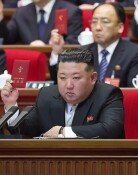[Editorial] Anti-Market Anxieties Should Vanish
[Editorial] Anti-Market Anxieties Should Vanish
Posted April. 20, 2004 21:22,
At a meeting between the government and the parties, which was held for the first time since the 17th general election, Lee Hun-jae, the deputy economic premier, pointed out that the Korean economy should be reorganized based on capitalism to a long term extent. On the other hand, the leading Open Uri Party has set forth that extra consideration for economic underdogs such as the harmonization of growth and renovation should be required for the future policy of government.
The abrupt slowdown of Koreas economy in the last year, down 3.1 percent, is connected with the theory of growth and distribution parallelism and pro-Roh policy, which inclined to distribution rather than to prosperity of the economy as a whole. Finally, the low growth rate even aggravated the distribution sector too.
In order to recover this loss, the government is giving the recovery of investment preference over other economic countermeasures in order to create more job openings, but still the result of government concern is far from reassuring. In this unfavorable condition, the leading party should exert its best to make each economic body place greater trust in the political consistency of government rather than disagreeing with the government as to economic policies, which may exert negative influences on the investment recovery.
If the remarks of the leading party such as economic recovery, and concerns for underdogs are based on anti-capitalism spirit, which bears the artificial market intervention by government in mind, it is seriously out of the orthodox path. Though reference of concerns for underdogs is a sort of sweet political rhetoric, it can inflict great damages to the weak if it violates the theory of capitalism. The precedents set in South American countries firmly establishes this fact. Oppressive trials of part-timers converted into regular workers can worsen the management efficiencies of companies and accelerate the exodus of talent to overseas, which can categorically reduce the amount of job openings in the end.
The Democratic Labor Party, which has become the third party in National Parliament, should also reorganize its economic policies. Their public commitment to the wealth tax and increasing corporation and income taxes to expand the range of social welfare could reduce company activities and workers desire for labor. If this happens, it will be hard to be effective, as illustrated by the communism example, to say nothing of the present condition of the world where the boundaries of capital movement have already vanished. By doing so, the void of industry and wealth in the country may be aggravated.







